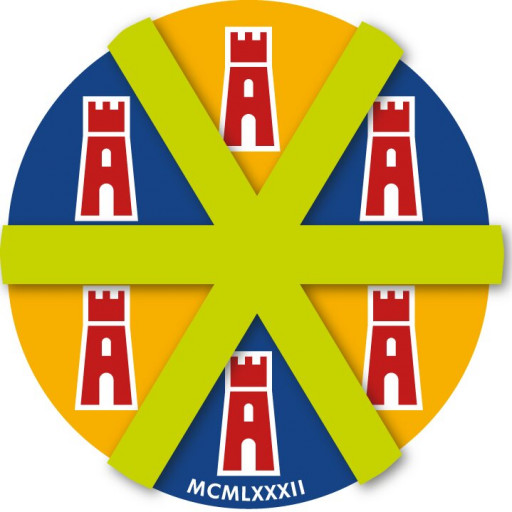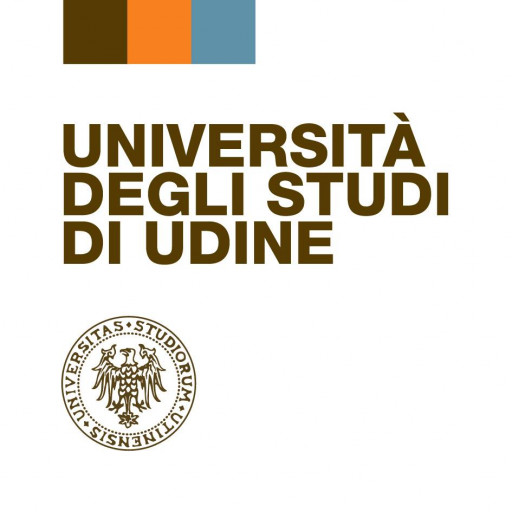Photos of university / #uva_amsterdam
Cultural Sociology at the University of Amsterdam offers a comprehensive and dynamic program that explores the intricate relationship between culture, society, and social change. This multidisciplinary degree delves into the ways cultural norms, values, symbols, and practices influence social structures and individual identities across different contexts and historical periods. Through a rigorous curriculum, students will examine issues such as cultural diversity, memory, identity, media, and globalization, equipping them with a deep understanding of the role culture plays in shaping social realities.
The program combines theoretical frameworks with empirical research methods, enabling students to critically analyze contemporary societal phenomena. Students will engage with a variety of disciplines, including sociology, anthropology, history, and media studies, fostering a multidimensional perspective on cultural processes. The coursework includes seminars, lectures, case studies, and research projects, encouraging active participation and fostering academic and practical skills relevant for careers in research, policy, media, and cultural sectors.
Graduates of the program will be equipped to interpret and respond to cultural trends and challenges in a globalized world. The program also emphasizes the importance of intercultural competence and fostering a reflective understanding of cultural diversity. With experienced faculty members who are experts in their fields, students benefit from a stimulating academic environment that promotes critical thinking, innovative research, and professional development.
Situated in one of Europe's most vibrant cultural hubs, the University of Amsterdam provides students with excellent opportunities for internships, research collaborations, and engagement with cultural institutions. The program prepares graduates not only to understand cultural phenomena but also to contribute thoughtfully to societal debates and development. Whether pursuing careers in academia, media, international organizations, or the cultural sector, students will emerge with valuable skills and insights to navigate and influence an increasingly complex cultural landscape.
The Master's programme in Sociology: Cultural Sociology at the University of Amsterdam offers a comprehensive and in-depth exploration of how culture shapes societies, identities, and social interactions. This programme is designed for students who are interested in understanding the complex ways in which cultural practices, beliefs, and symbols influence social structures and individual behaviors across different contexts. Over the course of the programme, students will examine a wide range of topics including cultural norms, values, media, everyday life, identity formation, and the impact of globalization on local cultures.
The curriculum combines theoretical frameworks with empirical research methods, enabling students to critically analyze cultural phenomena and produce original research. Core courses provide foundational knowledge in sociological theories related to culture, such as symbolic interactionism, cultural studies, and social constructionism. Students will also have the opportunity to specialize in particular areas of interest through elective courses, including media and communication, consumption, identity politics, and popular culture.
Research is a central component of the programme, with students engaging in individual and group projects that involve qualitative and quantitative methods. The programme emphasizes critical thinking and methodological rigor, preparing graduates for careers in academia, research institutes, cultural organizations, media, and public policy. The university's vibrant academic community and strong international network facilitate engaging discussions and collaboration with scholars and practitioners from around the world.
Graduates of the Cultural Sociology programme are equipped with advanced analytical skills and a thorough understanding of cultural processes, making them valuable contributors to societal debates and policy development. The programme's interdisciplinary approach ensures that students gain a nuanced perspective on the complex interactions between culture and society, preparing them for diverse professional paths in a globalized world. Overall, this master's programme offers a rigorous and stimulating environment for anyone passionate about exploring the cultural underpinnings of social life.
Programme requirements for the MSc in Sociology: Cultural Sociology at the University of Amsterdam include a relevant bachelor’s degree or equivalent qualification in sociology, anthropology, or a related social science discipline. Applicants must demonstrate proficiency in English, typically through standardized tests such as IELTS (minimum score of 7.0 overall) or TOEFL (minimum score of 100 internet-based test). Some requirements may also include submission of a CV outlining relevant academic and professional experience, and a motivation letter explaining the applicant's interest in cultural sociology and career goals. Prior coursework in qualitative and quantitative research methods is advantageous. A minimum GPA or academic standing may be expected, though specific thresholds are not publicly specified. The programme values diversity in academic background, encouraging applicants who can show critical thinking, analytical skills, and a strong interest in understanding social and cultural phenomena. Experience with empirical research methods, data analysis, or related social science research is beneficial. There are no mandatory entrance exams, but some applicants may be invited for an interview or asked to submit additional documentation to assess their motivation and suitability. The application process is competitive, and meeting the minimum requirements does not guarantee admission. Additional criteria such as relevant professional experience in cultural sectors or participation in related extracurricular activities can strengthen an application. Candidates are advised to prepare their application documents carefully, emphasizing their academic achievements, research interests, and ability to contribute to the programme's academic community. The university encourages applicants from diverse backgrounds to apply to foster an inclusive learning environment.
Want to improve your English level for admission?
Prepare for the program requirements with English Online by the British Council.
- ✔️ Flexible study schedule
- ✔️ Experienced teachers
- ✔️ Certificate upon completion
📘 Recommended for students with an IELTS level of 6.0 or below.
The MSc in Sociology: Cultural Sociology at the University of Amsterdam offers various financing options for prospective students. The primary source of funding is the Dutch government’s student finance system, which provides loans and grants to eligible Dutch and EU/EEA students. These financial aids are designed to cover tuition fees and living expenses during the course of the program. Non-EU/EEA students are generally considered international students and are responsible for the full tuition fee; funding options for such students are more limited and often involve external scholarships or personal funding.
The University of Amsterdam also offers a range of scholarships and bursaries aimed at attracting talented students from around the world. These scholarships are based on academic excellence, financial need, or specific criteria related to the applicant’s background. For example, the Amsterdam Excellence Scholarship (AES) is a highly competitive fund that covers full tuition and provides a stipend for living expenses, primarily targeting outstanding students. Additionally, there are faculty-specific scholarships, such as those offered by the Faculty of Social and Behavioural Sciences, which can assist in reducing the financial burden of the program.
Students are encouraged to explore external funding opportunities from governmental agencies, international organizations, and private foundations. The Dutch Ministry of Education, Culture and Science supports various scholarship programs for international students, including the Holland Scholarship and Erasmus Mundus funds. These programs facilitate international mobility and help finance studies in the Netherlands. Students may also consider applying for loans, part-time jobs, or internships related to their field of study to support their finances during the programme.
The program’s cost structure includes tuition fees that vary depending on the student’s nationality and residency status. As of recent academic years, the tuition fee for EU/EEA students is approximately €2,300 per year, while non-EU/EEA students pay around €13,000 per year. Living expenses in Amsterdam are estimated to be approximately €12,000 to €15,000 annually for accommodation, food, transportation, and study materials, which students often finance through personal savings, employment, or scholarships.
In summary, students enrolled in the MSc Sociology: Cultural Sociology programme at the University of Amsterdam can access a variety of financing options, including Dutch student grants and loans, university-specific scholarships, and external funding sources. Planning and applying early for these opportunities can significantly ease the financial burden and allow students to focus on their academic and research activities.
The Sociology: Cultural Sociology master's program at the University of Amsterdam offers students a comprehensive understanding of cultural phenomena and social processes. This program explores how cultural practices, symbols, media, and institutions influence society and individual behavior. It aims to develop analytical skills and theoretical knowledge to interpret cultural changes and their consequences in various social contexts. The curriculum combines core sociological theories with interdisciplinary approaches, including anthropology, media studies, and history, providing students with a well-rounded perspective on cultural dynamics. Students engage in critical discussions, research projects, and case studies to apply theoretical concepts to real-world issues. The program emphasizes qualitative and quantitative research methodologies, equipping graduates with practical skills for academic, policy, or consultancy careers. Throughout their studies, students analyze contemporary issues such as globalization, identity formation, popular culture, and social inequality from a cultural perspective. The program fosters an international learning environment with diverse student cohorts and instructors from around the world. Graduates are prepared for doctoral research or careers in cultural organizations, media, NGOs, government agencies, or private enterprises involved in cultural analysis or strategy. The University of Amsterdam's location in a vibrant cultural city enhances the learning experience, offering access to museums, theaters, festivals, and research institutions dedicated to cultural studies. The program typically lasts one year for full-time students and includes coursework, research, and a final thesis. Admission requirements usually include a relevant bachelor's degree, proficiency in English, and a motivation letter. The university provides excellent support services, networking opportunities, and platforms for professional development, ensuring students are ready to contribute to academic or industry settings after graduation.









